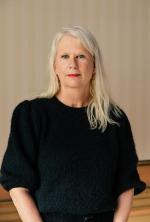
Hinke Piersma appointed professor by special appointment
In her work, Piersma focuses on research that stems from social demands, in particular with regard to the restoration of rights of persecuted Jews after the Second World War. For example, she has conducted research into, among other things, the post-war policy of the City of Amsterdam regarding the restoration of rights of Jewish war victims, and she is supervising similar research by the cities of Rotterdam and Zwolle. She also published the book Op eigen gezag. Politieverzet in oorlogstijd (On Their Own Authority. Police Resistance in Wartime) about policemen who negotiated the difficult balancing act between institutional collaboration and personal resistance. This year saw the publication of her biography of the influential Jewish lawyer David Simons, who flourished behind the scenes and rarely sought the spotlight.
Connection with social partners
Within the new chair, Piersma will continue to focus on the impact of the Second World War in the Netherlands. She will seek connection between academic research and social partners in fields including education, public history, restoration of rights and restitution policy. In that way, she will translate social demands into concrete projects and programmes for public history research.
The Special Chair is in line with the broadening of the historiography and culture of remembrance of the Second World War in the Netherlands. Through the chair, Piersma wants to make a meaningful contribution to research and debate on political, social and psychological issues that ensued from the Second World War. ‘Moreover, it concerns topical issues, such as individual and collective complicity in the case of persecution and violent repression’, according to the professor. ‘In a broader sense, it revolves around complex issues of responsibility and room for manoeuvre – topics which I have noticed that students are very much occupied with as well.’
Sources disappear over time
Piersma believes it is important that we realise that we come up against the limits of what we can and cannot know when conducting historical research. ‘In my lectures, I try to make my students aware that there is a lot we don’t know and for that reason we should always adopt a self-effacing position when judging the past. Many sources disappear over time and memories become scattered. I think it is just as interesting to study that which disappears as that which remains.’
In addition to her professorship by special appointment, Piersma will continue to be affiliated with the NIOD Institute for War, Holocaust and Genocide Studies as Head of Research and Deputy Director.
About Hinke Piersma
Hinke Piersma studied History at the University of Amsterdam and obtained her doctorate in 2005 with her thesis De drie van Breda: Duitse oorlogsmisdadigers in Nederlandse gevangenschap 1945-1989 (The Breda Three. German War Criminals in Dutch Custody 1945-1989). Since 2003, she has been affiliated with the NIOD Institute for War, Holocaust and Genocide Studies as a researcher. She has published a large number of books, including Openstaande rekeningen (Open accounts), Zussen (Sisters) and Vergeet de trieste dagen (Forget the sad days).
